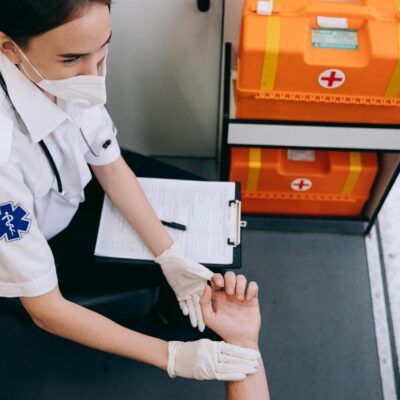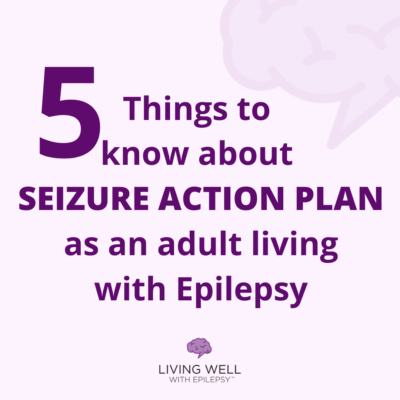
1. Come with information
Start by bringing our 5 reasons to have a rescue medication to the discussion (hint: just print out this article)
2. Be prepared for the “Why?”
Think about when and how you might need to use it. And what is the alternative if you don’t have the rescue medication. Could your seizure last more than 5 minutes? Could you have a cluster of seizures?
3. Be prepared for the “Who?”
Make a note of who could help you administer it if necessary. Think about who might be likely to be with you if you have a seizure at work or school. Who would you train on how to administer the medication.
4. Consider the “What?”
Take time to learn about the options available for rescue medications. There are several available. You may prefer some over others. The only way to know that is to learn about the different types available. For more information on the different treatments available you can visit the epilepsy foundation page on Rescue Therapies here: https://www.epilepsy.com/treatment/seizure-rescue-therapies.
5. Consider the “How?”
As you are looking through the different options of rescue therapies, you will see that some are available in pill form and can cause drowsiness while others can be delivered as a nasal spray. Either way consider how you want to receive this medication and bear in mind your lifestyle and other responsibilities.
Here’s a recap of our 5 reasons to have a rescue medication for epilepsy.
1. Get better control of your seizures
Having a rescue medication is especially important when your seizures are not controlled. These medications can help you stop a seizure short so you can get back to life easier or if taken during an Aura, may even prevent a full tonic clonic seizure.
2. Have a backup during stressful times
A while back my parents were sick and I was driving eight hours each way to visit them at least twice a month. This was stressful and tiring, both of which are seizure triggers for most people. I should have had a rescue med on hand but one was not made available to me.
3. Stay covered when you travel
People with epilepsy often report that airtravel can impact their seizure threshold. Meaning, airtravel can make you more likely to have a seizure. This may be due to stress, cabin pressure, or lack of sleep but it is a good idea to have a rescue med on hand.
4. Reduce your recovery time
Some rescue medications can reduce seizure recovery time from several days to a matter of hours. And isn’t getting back to your regular routine what it’s all about?
5. Have on hand during your period
If you are a woman with catamenial epilepsy, you wouldn’t go out without tampons or pads during your period. So why would you go out without a rescue medication? Seems only logical to have all the necessary supplies on hand.
This article was made possible through an educational grant from Neurelis Inc. Neurelis had no influence on the content of the articles or the videos or any aspect of this program.









Leave a Reply